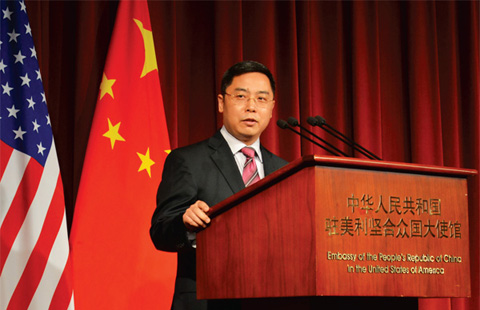Sins of omission refer to the failure of people to do good deeds when they are in a position to do so. It is somewhat similar to the Chinese expression buzuowei, which is used to describe a lot of officials' failure to perform their official duties.
If the abuse of power by officials are sins of commission that undermine not just the governing capability of the ruling Party but also its legitimacy, their sins of omission are equally detrimental to almost every aspect of any work that contributes to China's social and economic development.
What is obnoxious is the phenomenon that the rampant sins of commission have added to the banality of the sins of omission. When an official is obsessed with pursuing personal gains by abusing his/her power, it is almost impossible for him/her to lend enough thought to the job that he/she is obliged to do. As a result, it has become some officials' habit to determine whether their obligatory work can provide opportunities for making personal gains. Such rampant abuse of power has deeply compromised the work efficiency and effective governance of the government.
Classification of garbage is a case in point. The classification of garbage is of utmost importance for a city to dispose its waste in an environmental friendly manner. However, none of China's cities has done a good job in this specific area no matter how much lip service local government leaders have paid to it. Since it involves a lot of work in specific areas, none of the departments or officials of any city government has bothered to make genuine efforts in this regard.
Compared with their corrupt counterparts, officials who want to keep their hands clean ostensibly believe they have enough reason to regard themselves as good officials despite failing to perform their duties that come with their positions. Compared with officials who have got away with the ill-gotten wealth they made by abusing power, it seems plausible for the clean but good-for-nothing officials to be considered good examples.

 Across America (May 29- June 4)
Across America (May 29- June 4)
 Operation underway to turn the ship over
Operation underway to turn the ship over
 Prayers held for ship passengers
Prayers held for ship passengers Warriors beat Cavs in Game One OT thriller
Warriors beat Cavs in Game One OT thriller
 Cannavaro's Evergrande life in photos
Cannavaro's Evergrande life in photos
 Ten photos you don't wanna miss - June 5
Ten photos you don't wanna miss - June 5
 Chicago gets a present from Shanghai
Chicago gets a present from Shanghai
 Rescuers cut into capsized ship in search for survivors
Rescuers cut into capsized ship in search for survivors














